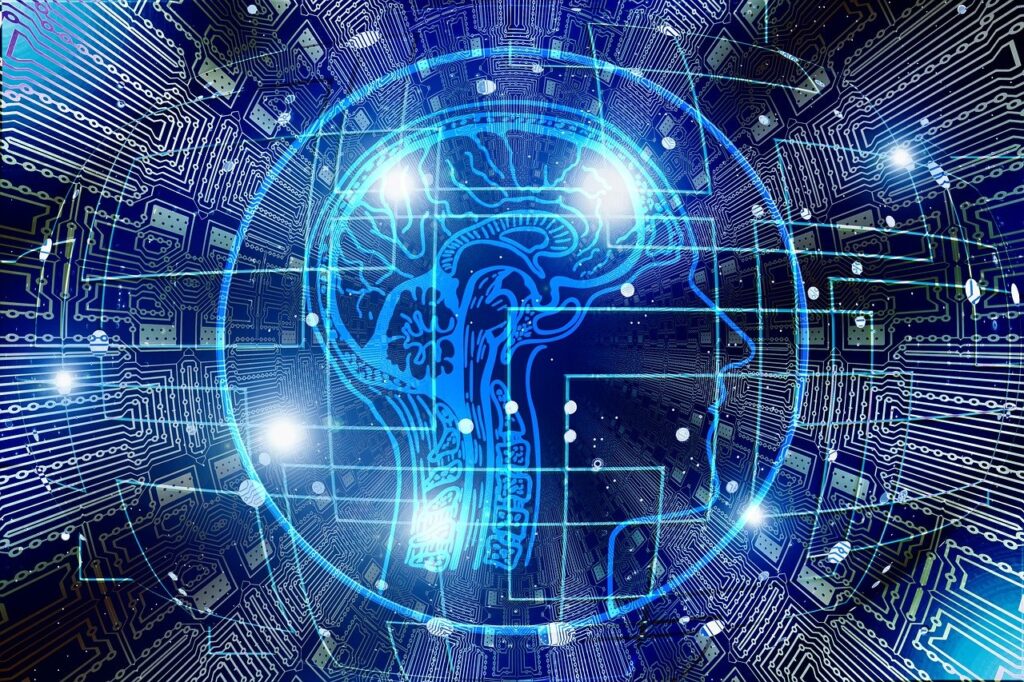AI in Transportation: The Future of Autonomous Mobility
The world of transportation is undergoing a seismic shift as artificial intelligence (AI) technology is rapidly advancing and beginning to revolutionize the transportation industry. AI has the potential to revolutionize the way we get around, from autonomous vehicles to self-driving buses and delivery drones. Advancements in AI-enabled technologies have already begun to shape the future of transportation, and the possibilities are truly limitless.
The transportation industry implements AI-driven technologies in various ways. Researchers are developing autonomous vehicles that drive themselves, eliminating the need for human drivers. These vehicles use sensors and algorithms to detect their surroundings and make safe decisions about how to move through traffic. Furthermore, the design of these autonomous vehicles aims to be more efficient and cost-effective, which will reduce transportation costs for both businesses and consumers.
The development of self-driving buses and delivery drones also leverages AI. Researchers design these systems with advanced AI algorithms that enable autonomous navigation through the environment, avoiding obstacles and making informed decisions about their destinations. The goal of these systems is to decrease traffic congestion and enhance road safety, while also cutting transportation costs.
The logistics industry also implements AI-enabled technologies. AI technologies track shipments, predict delivery times, and optimize routes to reduce costs and increase efficiency.AI-enabled tracking systems can help logistics companies reduce costs and provide better customer service by providing real-time updates on the status of shipments.
AI also enhances the safety of transportation through AI-enabled technologies. These technologies detect potential hazards, such as potholes or traffic congestion, and alert drivers to the danger. They can also predict traffic patterns and notify drivers of any potential delays. AI-enabled technologies can also help reduce the risk of accidents by providing drivers with real-time information about their surroundings.
The potential of AI technology in the transport industry is truly limitless. Artificial intelligence-enabled technologies can revolutionize the way we get around, reduce traffic congestion, improve safety, and reduce the cost of transportation. As AI technology continues to advance, the possibilities are truly endless. Artificial intelligence-enabled technologies will continue to shape the future of transportation and open up new possibilities for autonomous mobility.
The Advantages of AI in Transportation

Increased Efficiency
AI in transportation offers a significant advantage of increased efficiency. By using AI, the optimization of delivery routes becomes possible, leading to reduced time and fuel consumption for transporting goods from one location to another.This not only saves time and money, but also helps to reduce the carbon footprint of the transport industry.
Improved Safety
AI is also playing a key role in improving the safety of our roads. For example, self-driving vehicles equipped with AI systems are able to detect and respond to road hazards in real-time, reducing the risk of accidents. This technology has the potential to significantly reduce the number of road accidents, making our roads safer for everyone.
Personalized Transportation
Another advantage of AI in transportation is personalize transportation. AI-powered systems can analyze a person’s transportation needs and preferences, and suggest the most efficient and convenient mode of transportation. This could include public transportation options, ride-sharing services, or even self-driving vehicles.
Predictive Maintenance
AI also predicts when a vehicle requires maintenance, enabling proactive repairs and lowering the possibility of unforeseen breakdowns. This not only saves time and money, but also helps to keep our roads safer by reducing the number of vehicles on the road that are in need of repairs.
The Future of AI in Transportation
Autonomous Vehicles
One of the biggest trends in the transportation industry is the development of autonomous vehicles. Self-driving vehicles equipped with AI systems are able to navigate roads and make decisions without human input, improving the efficiency and safety of our roads. This technology is still in its early stages, but it has the potential to transform the way we move in the future.
Smart Cities
Another trend in the transportation industry is the development of smart cities. Smart cities use technology to optimize transportation and improve the quality of life for residents. AI is playing a key role in this trend, by helping cities to optimize transportation networks, reduce congestion, and improve air quality.
Intermodal Transportation
Intermodal transportation refers to the use of multiple modes of transportation to move goods and people from one place to another. AI is helping to optimize intermodal transportation networks, by analyzing transportation patterns and suggesting the most efficient routes. This not only saves time and money, but also helps to reduce the carbon footprint of the transportation industry.
Conclusion
AI is revolutionizing the transportation industry, from optimizing delivery routes to improving road safety. This technology has the potential to transform the way we move, making our roads safer and more efficient. As AI continues to evolve, we can expect to see even more exciting developments in the transportation industry in the future.

